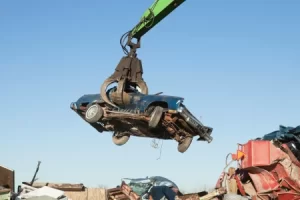Introduction To Scrap My Car Services
Vehicle recycling services offer a sustainable solution for disposing of old, unusable vehicles. This blog explores the nuances of these services, focusing on their environmental responsibilities and how companies like BJ Wreckers are making a difference.
The Principle of Vehicle Recycling
The basic idea behind these services is simple: they provide an environmentally friendly way to dispose of old, damaged, or unusable vehicles. When a car reaches the end of its usability, leaving it to deteriorate is unsightly and harmful to the environment. These services ensure that the disposal process is environmentally responsible.
The Vehicle Scrapping Process
Scrap my car process begins when car owners decide their vehicle is beyond repair or use. Companies like BJ Wreckers step in to handle the situation. Here’s the typical workflow:
- Assessment and Collection: The vehicle is evaluated, and collection arrangements are made.
- Depollution: Hazardous materials such as batteries, oils, and fluids are removed to prevent environmental damage.
- Dismantling and Recycling: Usable parts are removed for reuse or resale, and the rest of the vehicle is recycled, minimising waste.
Environmental Responsibility in Vehicle Disposal
The heart of vehicle recycling services like Scrap My Car lies in their environmental commitment. Proper disposal and recycling of vehicles significantly reduce the automotive industry’s ecological footprint. Key aspects include:
- Minimising Landfill Waste: Ensuring cars don’t end up in landfills prevents space wastage and pollution.
- Promoting Recycling and Reuse: Salvaging parts decreases the demand for new parts, saving resources and energy.
- Handling Hazardous Materials Safely: Properly managing dangerous components helps avoid soil and water contamination.
BJ Wreckers: Leading by Example
BJ Wreckers exemplifies how integrating environmental responsibility into business practices sets industry standards for eco-friendly operations.
Technological Advances in Vehicle Recycling
Technological advancements have enhanced the efficiency of vehicle recycling. From improved dismantling equipment to sophisticated handling of hazardous materials, technology ensures environmental compliance and operational efficiency.
Community and Economic Benefits
These recycling services contribute to the community and economy by generating jobs and providing affordable parts. The environmental benefits also positively impact public health and well-being.
Future Directions in Vehicle Recycling
The industry is expected to evolve with technology and potentially stricter environmental regulations, especially with the increasing prevalence of electric and hybrid vehicles.
Conclusion
Services like those offered by BJ Wreckers play a vital role in bridging environmental stewardship and the automotive industry. Their commitment to recycling and responsible disposal is crucial for a sustainable future. As the industry evolves, the significance of these services will continue to grow, highlighting the need for ongoing innovation and dedication to environmental protection.





